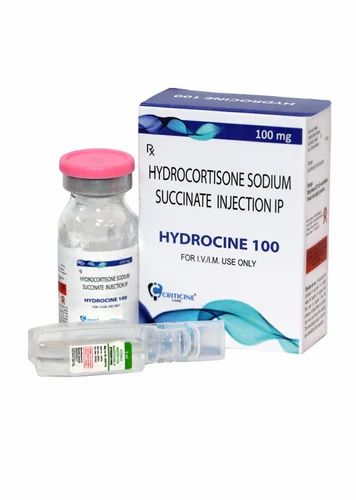Hydrocortisone injection is a medication that contains the steroid hormone hydrocortisone. It is frequently used to relieve swelling, pain, and inflammation brought on by various medical disorders. The uses, side effects, safety measures, and other aspects of hydrocortisone injection will be covered in this article.

Uses of Hydrocortisone Injection
Many conditions, including the following, are treated with hydrocortisone injection:
Arthritis: Joint pain and inflammation brought on by arthritis can be treated by injections of hydrocortisone.
Asthma: By lowering airway inflammation, hydrocortisone injections can help alleviate the symptoms of severe asthma attacks.
Allergies: An injection of hydrocortisone can help with symptoms of severe allergic reactions, like swelling and breathing difficulties.
Skin Conditions: Eczema, psoriasis, and allergic responses are just a few of the conditions that are treated with hydrocortisone injection.
Injections of hydrocortisone may assist to lessen digestive tract inflammation and relieve the signs and symptoms of fomenting bowel disease.
Injections of hydrocortisone operate by lessening bodily inflammation. The body responds to damage or illness with inflammation, which can result in redness, swelling, and pain. Hydrocortisone injection can aid in relieving these symptoms and advancing healing by lowering inflammation.
Side Effects of Hydrocortisone Injection
Hydrocortisone injection might have negative effects, just like any drug. Typical negative effects include:
An increase in hunger is a side effect of hydrocortisone injection that might result in weight gain.
Hydrocortisone injection might interfere with sleep cycles, making it difficult to get to sleep or stay asleep.
Vomiting or nausea may occur after receiving an injection of hydrocortisone.
Headache: An injection of hydrocortisone may result in headaches.
Dizziness: An injection of hydrocortisone may make you feel lightheaded or dizzy.
Weight increase: Weight gain, particularly in the face, neck, and trunk, can result from hydrocortisone injection.
Mood swings: Hydrocortisone injection might alter your mood and leave you feeling agitated, anxious, or depressed.
Hypertension: An injection of hydrocortisone may raise blood pressure, which may increase the risk of heart disease and stroke.
Injections of hydrocortisone can raise the risk of infection because they depress the immune system.
Hydrocortisone injection can slow down the development of new cells and tissues, which might hinder wound healing.
Precautions for Using Hydrocortisone Injection
When utilizing hydrocortisone injection, it’s crucial to exercise caution. They consist of:
If you have any health problems or are undergoing any treatments that can impact the efficacy of a hydrocortisone injection, make sure to inform your physician. For instance, individuals with diabetes, hypertension, or liver disease may need to have their dosage adjusted or monitored when taking hydrocortisone injections. Additionally, taking blood thinners and immunosuppressant medications may interact with hydrocortisone injection and increase the chances of experiencing adverse effects.
letting your doctor know if you’re expecting or nursing because hydrocortisone injection may not be safe at those times


